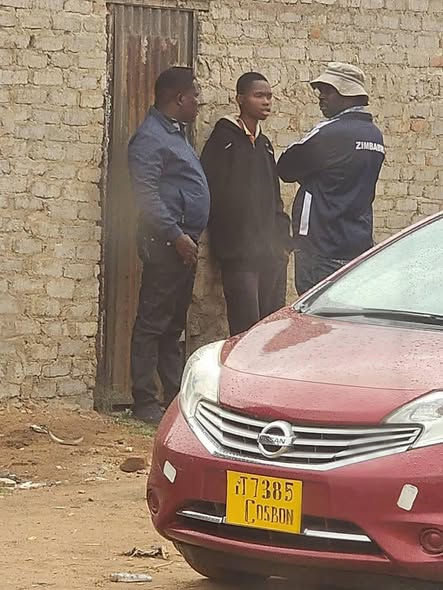COMMUNIQUE OF #ANTIPVOBill TWITTER RALLY
- Crisis Regional Media

- Nov 9, 2022
- 4 min read

The Crisis in Zimbabwe Coalition on November 9, 2022 hosted the #AntiPVOBill Twitter Rally in collaboration with various local civil society organisations. The Rally is part of a continuous and collective civil society pushback against the enactment of the Private Voluntary Organisations (PVO) Amendment Bill, which civil society and other regional and international actors have flagged as not only unconstitutional, but a lear ploy by the Government of Zimbabwe to curtail freedom of association as enshrined in the Constitution of Zimbabwe.
The Executive Director of Chapter 1 Foundation of Zambia, Linda Kasonde gave a keynote solidarity speech during the Twitter Rally.
Below is a summary outline of the concerns raised by various speakers during the Rally;
1. The PVO Bill is a calculated plot by the government to criminalize the operations of civil society organizations (CSOs) and close out civic and democratic space. This runs contrary to Section 58 of our constitution which guarantees freedom of assembly and association and is clearly intended to consolidate authoritarian rule by the incumbent government.
2. The PVO Bill seeks to curtail the operations of civil society actors that have been leading the patriotic task of holding our government and elected leaders to account. If passed, The Bill will reduce transparency and accountability on the part of the government through silencing voices critical of the government. This violates Sec 59 (freedom to demonstrate and petition) and Sec 61 (freedom of expression) of our constitution.
3. The PVO Bill is an attempt by the Zimbabwean government to increase ‘domestic sanctions against its citizens’; presently, the government is failing to adequately provide for basic social goods and services including health and education, with a lot of assistance coming from donor organizations and other development partners, who prefer to work through civil society organizations because of the government’s poor corporate governance track record. If enacted, the Bill will result in further curtailing citizens' access to public goods and services.
4. Enacting the PVO Bill on the eve of the 2023 elections shows a determined plan to stifle the work of civil society actors working to improve electoral integrity. Local civil society actors are key in the long-term monitoring and observation of the electoral environment and their work does not just start and end with the voting period alone. The Bill will therefore impact negatively on the credibility of Zimbabwe’s 2023 elections.
5. By seeking to exercise overbearing influence and control on the operations of organisations providing providing various services to citizens, including civic education and advocacy, humanitarian aid and other developmental initiatives, the PVO Bill will restrict provision of food aid to millions of poorZimbabweans and affect fundamental rights such as the right to shelter, health, education and water thus impacting negatively on the livelihoods of the ordinary person at a time the government has apparently failed to fulfill the social contract by providing these numerous public goods and services.
6. The PVO Bill seeks to criminalize trade unionism and this will affect workers rights to organize and protest for better working and living conditions.
7. Gender justice is unachievable in the event that the PVO Bill prevails due to the fact that the government will seek to muzzle operations of various women’s organisations.
There was consensus during the Twitter Rally that the power to resist amendments to the PVO Bill rests with the people.
Way Forward
Civil society must continue to collectively raise awareness and consciousness among citizens on the negative impacts political, economic and social impacts of the PVO Bill.
There is need to drum up public support against the PVO Bill and ensure consistent actions aimed at registering discontent against the draconian PVO Bill. This must include strategies to ensure that even if passed, the PVO Bill will not stop citizens from exercising their constitutional rights, especially freedoms of assembly and association, which remain sacrosanct in entrenching democratic and developmental governance.
Civil society actors from across the country must collaborate in organizing and mobilizing the masses against the PVO Bill; the Bill is not in the interests of ordinary masses but a clique in ZANU PF seeking to retain power at all costs. Those in the remote, marginalized and border-lying areas must not be left behind; they are often left out of developmental programming, yet bear the brunt of inadequate access to public goods and services, with little if any avenues to seek redress or hold the government to account.
Civil society will intensify canvassing for regional and international solidarity; authoritarian governance has always been successfully challenged with the solidarity and support of regional and international partners. Rhodesia and apartheid South Africa are two clear examples.
Dialogue remains a key long-term strategy to addressing the challenges facing the country; as such, civil society must continue with efforts towards bringing Zimbabweans to dialogue in addressing what has clearly been a long transition to democracy. Civil society will continue to bring citizens across the political divide to dialogue, firstly in defending their right to livelihoods, but also to an environment which supports their self-development, social mobility and opportunities to contribute to the development of their country.
ENDS//






Comments